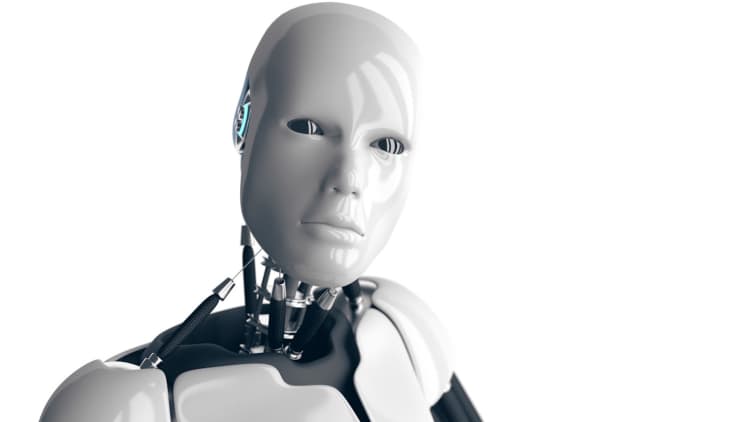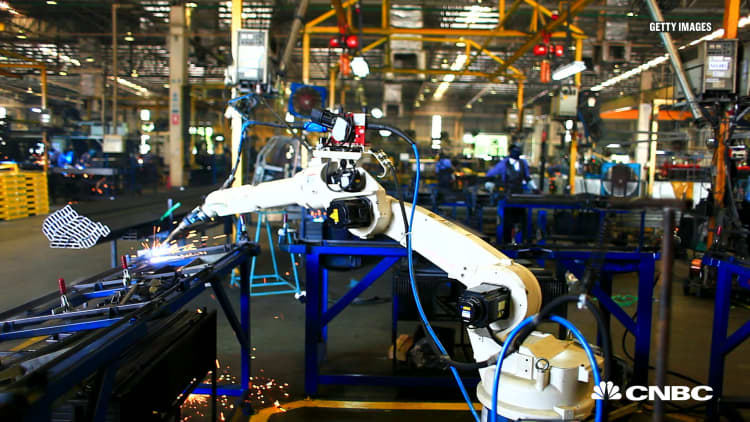Technological innovation is rapidly increasing the potential of human productivity. In the short run, those advances mean that many workers, particularly those in lower-skilled positions, will lose their jobs to automation.
But billionaire investor Warren Buffett and Microsoft co-founder Bill Gates say that increasing the potential output of each human being is always a good thing.
"The idea of more output per capita — which is what the progress is made on productivity — that that should be harmful to society is crazy," says Buffett, speaking at a recent Facebook Live event broadcast from Columbia University and moderated by Charlie Rose.
"If one person could push a button and turn out everything we turn out now, is that good for the world or bad for the world?" asks Buffett. "You would free up all kinds of possibilities for everything else."
In the coming years, an increasing number of jobs are likely to be on the chopping block.
Nearly half of U.S. jobs will potentially be replaced by robots and automated technology in the next 10 to 20 years, according to a 2013 study by Oxford University's Carl Frey and Michael Osborne. In particular, transportation, logistics, office management and production workers are likely to be the first to lose their jobs to robots.
Those figures are more dire in less developed countries. A 2016 analysis from the World Bank estimated that roughly two-thirds of all jobs in developing nations around the globe are susceptible to replacement by automation.
If one person could push a button and turn out everything we turn out now, is that good for the world or bad for the world?Warren BuffettCEO and chairman of Berkshire Hathaway
Buffett cautions that the trend towards automation replacing lower-skilled labor is not new.
"If we were here in 1800 and conducting this, somebody would point out that eventually tractors would come along and better fertilizer and that 80 percent of the people are now employed on the farm and in couple hundred years it is going to be 2 or 3 percent, and what are we going to do with all these people?" says Buffett. "Well, the answer is we released them."
With fewer people needed to work on farms, more are able to pursue other skills and vocations.
"The macro picture that it enables is an opportunity," says Gates.
While both billionaires are self-avowed optimists and firmly preach the potential of a better future with robots doing more of our mundane or repetitive skills, both stress the importance of some form of wealth redistribution.

"Everything should be devoted initially to getting greater productivity," says Buffett. "But people who fall by the wayside, through no fault of their own, as the goose lays more golden eggs, should still get a chance to participate in that prosperity.
"And that is where government comes in."
Buffett and Gates are not alone in this vision. SpaceX and Tesla founder Elon Musk told CNBC that it's a virtual inevitability that, as robots replace more and more jobs, the U.S. will have to implement a program of cash payments distributed to everyone.
As founding members of The Giving Pledge, Buffett and Gates are already making moves in that direction, having committed to donate more than half of the wealth they have amassed.
"A problem of excess really forces us to look at the individuals affected and take those extra resources and make sure they are directed to them in terms of re-education and income policies," says Gates.



